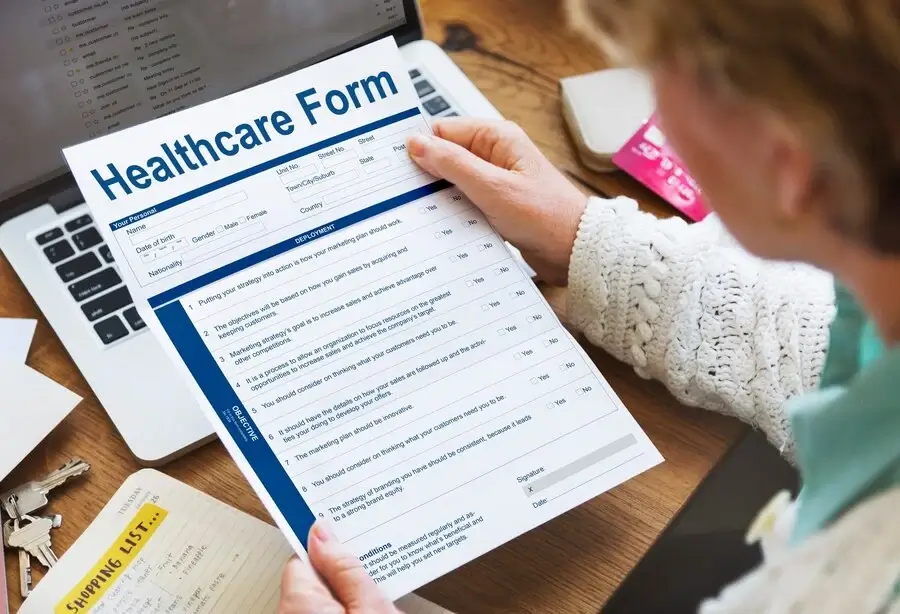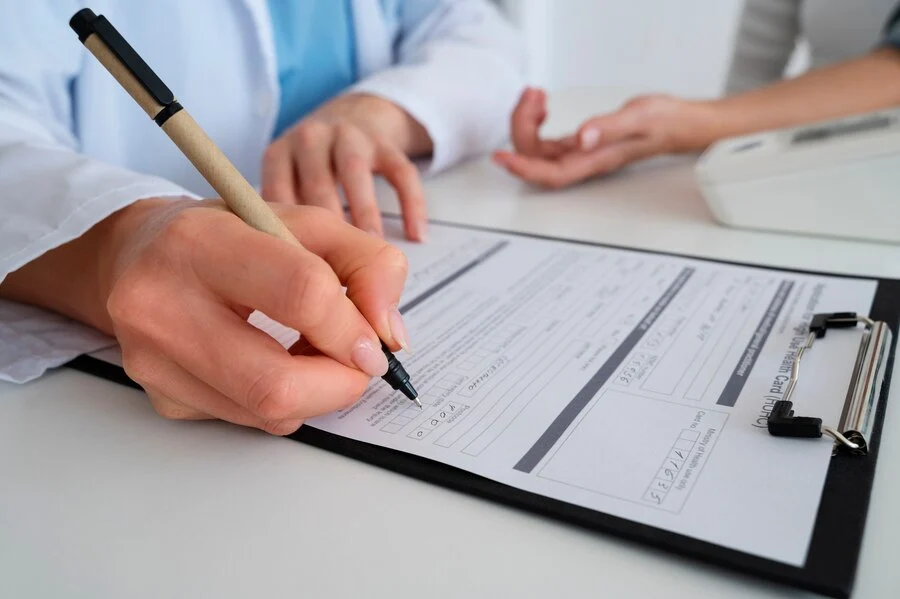personal injury lawyers
Fighting for maximum injury compensation for you and your family
No Fees Until We Win


Should I Sign A Medical Authorization Release Form After An Accident?
Many people must frequently decide whether to sign a Medical Authorization Release Form after an accident.
This significant form enables the sharing of medical data, typically with insurance providers.
It’s important to understand this form because it asks for confidential medical information.
Although it’s a crucial stage in handling accident claims, there are important considerations and worries about privacy and information exploitation.
This article examines the significance, dangers, and safety precautions associated with signing such paperwork after an accident, highlighting the value of being watchful and knowledgeable.
Understanding Medical Authorization Release Form
A Medical Authorization Release Form is an essential document that has a definite purpose.
It is used to permit healthcare providers to share a person’s medical information with specific parties.
Typically, in the context of accidents, these parties are insurance companies.
These forms serve as a legal pathway for insurance companies to access an individual’s medical records, which can be crucial when assessing and processing claims related to accidents.
When an accident occurs, the implications are not just physical but also legal.
It is during these times that the relevance of this form becomes most apparent, as it becomes a key piece in the intricate puzzle of legal proceedings and insurance claim settlements.
Insurance companies request these forms to scrutinize medical records and determine the legitimacy and value of a claim.

It is paramount for individuals to be well-informed about the form’s purpose and implications.
When approached to sign a Medical Authorization Release Form after an accident, understand its significance, the legal bearings it carries, and the role of insurance companies in requesting this document.
Can guide individuals to make decisions that are in their best interest, safeguarding their personal information and rights.
The Significance of Medical Authorization Release Forms
Crucial Role of the Forms
Medical Authorization Release Forms are incredibly important, especially after accidents.
They act as the bridge between your medical history and the insurance companies.
It’s through these forms that insurance companies can review your medical records and decide how much money you should get for your accident claim.
Connection to Accident Claims
- Medical Records: These are like a detailed story of your health. They have all the information about any past sickness or injury you’ve had and the treatments you’ve received.
- Accident Claims: When you have an accident and need financial help from your insurance, you make a claim. This is asking the insurance company to give you money to cover the damages.
Determining Claim Value
The information in these forms is vital as it helps in determining the value of your claim.
If the insurance company sees in your medical records that your injury is from the accident and not a previous condition, they are more likely to give you a higher amount of money.
Potential Risks Involved with Medical Authorization Release Forms
Exploring the Risks
Signing a Medical Authorization Release Form can come with a set of risks. When you sign, you allow insurance companies to look into your medical history.
While this is standard procedure, there can be instances where having such access can be harmful to your interests.
Potential Detriments
Exposure: Your entire medical history is exposed, revealing conditions and treatments that may be unrelated to the accident.
Reduced Claim Value: The insurance company might find previous conditions and argue that your injury isn’t completely due to the accident, thus offering you less money.
Misuse of Information
There is also a concern about how insurance companies might use the acquired information.
They could, in some cases, use your past medical history to deny your claim altogether or to significantly reduce the amount of compensation you receive.
How to Protect Your Interests
Implementing Protective Measures
When dealing with Medical Authorization Release Forms, it’s essential to protect your interests.
This means being cautious and seeking advice to ensure your private information is used correctly and only when necessary.
Seeking Professional Advice
- Legal Counsel: Consult with a legal advisor or a personal injury attorney before signing any forms. They can provide advice tailored to your specific situation.
- Reviewing Forms: It’s crucial to read the form thoroughly to understand what you are agreeing to, ensuring you’re not granting access to unrelated medical information.
Thorough Review
Before you sign anything, make sure you understand every point mentioned in the form.
If something is unclear, do not hesitate to ask for clarification. Knowing exactly what you are agreeing to can prevent potential issues in the future.
Deciding to Sign a Medical Authorization Release Form
Identifying Right Situations
Knowing when it’s appropriate to sign a Medical Authorization Release Form is crucial.
There are situations where it becomes necessary to facilitate the processing of claims, but it’s vital to do it under the right conditions.
Seeking Legal Guidance
Consultation: Always consider seeking advice from a legal counsel or a personal injury attorney.
They can guide you through the situations where signing is beneficial and help you understand the implications.
Balanced Decision-making: It’s about striking a balance between getting your claim processed and maintaining your privacy. Your attorney can help you in making an informed decision, considering the specifics of your case.
Maintaining Privacy
You should weigh the importance of processing your claim against the privacy of your medical information.
It’s about ensuring that your private information is disclosed only when it’s necessary for claim processing.
Exploring Alternatives to Full Medical Authorization Release Form
Limited Release Forms
There are alternatives like limited-release forms that offer benefits. These forms restrict the amount of information disclosed, sharing only what is strictly relevant to the accident claim.
Negotiating Limited Access
- Dialogue with Insurance Companies: You can negotiate with insurance companies to grant limited access to your medical records, discussing and defining what information is relevant.
- Legal Assistance: Having a legal counsel can aid in these negotiations, ensuring that only necessary information is shared, and protecting your privacy and interests.
Creating Protective Documents
Your attorney can help you create a document that stipulates the specific terms under which your medical information can be accessed, adding an extra layer of protection to your privacy.

Immediate Actions Post-Accident
Initial Steps Post-Accident
After an accident, it is essential to stay calm and follow a series of steps to ensure safety and gather necessary information.
- Inform Authorities: Call the relevant authorities immediately, ensuring that the incident is properly reported.
- Collect Information: Obtain details from all parties involved, like names, contact details, and insurance information, and document the accident scene if possible.
- Seek Medical Help: Regardless of injury perception, seek medical attention immediately to address any unseen injuries and obtain crucial medical records.
- Document Injuries: Ensure that all injuries and medical treatments received are well-documented, as these details can be pivotal when making insurance claims.
The Role of Legal Counsel
The Need for Legal Representation
Having legal representation or advice is immensely important when dealing with post-accident procedures.
- Navigating Insurance Dealings: Legal counsel can guide you through interactions with insurance companies, ensuring your rights are protected and that you receive fair treatment and compensation.
- Securing the Right Attorney: Finding an attorney who specializes in personal injury and understands your case’s intricacies is crucial to navigating the legal landscape effectively.
FAQs
Should I sign a Medical Authorization Release Form immediately after an accident?
No, it is advisable to review the form thoroughly and consult with a legal advisor before signing to understand the implications fully and to safeguard your interests.
Can I limit the information released through a Medical Authorization Release Form?
Yes, you can negotiate with insurance companies for limited access or use limited release forms to disclose only relevant information, often with the help of legal counsel.
Is legal counsel necessary when dealing with Medical Authorization Release Forms?
While not mandatory, having legal counsel is highly recommended to navigate through the process, protect your interests, and ensure fair treatment and compensation.
Conclusion
To sum up, approving a medical authorization release form is a serious decision that has wide-ranging repercussions.
It’s important to approach this cautiously and be aware of any potential risks. It is strongly advised that you hire legal advice to help you negotiate the difficulties and make sure your interests are well-protected.
Being knowledgeable and watchful is essential for protecting your privacy and obtaining just compensation after an accident.
This page acts as a reference for readers to better comprehend the relevance and ramifications of these forms and to promote a deliberate and knowledgeable approach.

Free Injury Case Evaluation
Send the form below and we will call you back in minutes.
…or Call Us Now
856-284-6446
